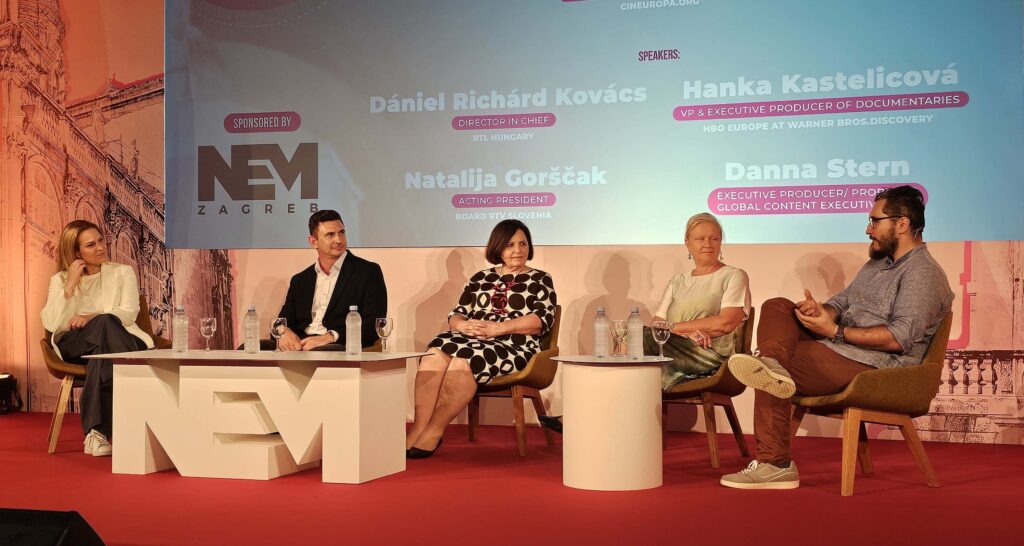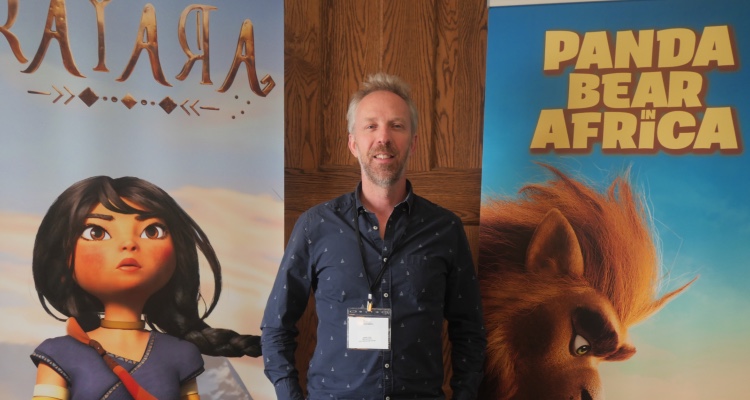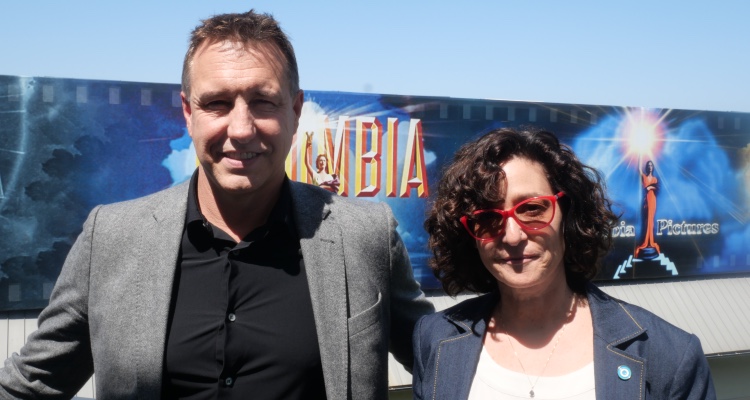Yesterday, in a distinguished panel titled «Strategies for Worldwide Success,» organized during NEM Dubrovnik 2024, industry leaders discussed the global potential of Central and Eastern European (CEE) content. The panel featured key figures such as Hanka Kastelicová, VP & Executive Producer of Documentaries at HBO Europe, Dániél Richárd Kovács, Director in Chief at RTL Hungary, and Natalija Gorščak, Acting President of the Board at RTV Slovenia, who provided insights into the strategies for enhancing the international appeal and success of region narratives.

Kastelicová highlighted the triumph of collaborative storytelling with the example of Spymaster, a series developed by HBO/Warner Bros. Discovery. ‘Spymaster is a gripping drama based on true events about a KGB agent’s desperate attempt to defect to the free world during the Cold War. The series is a product of international cooperation, involving creatives from Romania, Hungary, Germany, and the United Kingdom’.
The executive also emphasized that local productions often ‘resonate well globally’, citing the series’ success on Max and its accolades at festivals in Berlin and Manhattan. She stressed the importance of cross-border partnerships in the CEE region, noting that such collaborations ‘not only enhance the production quality but also broaden the audience reach’. ‘The series’ global success underscores the potential of CEE content to captivate international viewers when supported by strategic alliances and high production standards’, added.
In addition, Kovács shared the remarkable success of The King, a series about the life and tragic death of Hungarian pop star Jimmy Zanvó. The series, launched on RTL Hungary‘s new streaming platform, RTL+, aimed to increase subscribers and achieved quadruple the expected numbers. The exec pointed out a growing trend in the CEE region: leveraging real and historical events in fiction to engage audiences deeply.
‘While historical and cultural narratives hold significant appeal, there is also a need to diversify content’, remarked. Also mentioned ongoing developments in crime series in Hungary.
Finally, Gorščak brought a critical perspective on the internal challenges within the CEE content landscape. She lamented the lack of self-valuation and support among regional producers and broadcasters. Exec recounted the successful exchange of series in the former Yugoslavia, where republics shared and promoted each other’s content, fostering a robust regional market.







